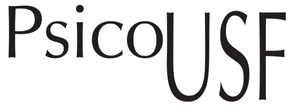Abstract
This study aimed to identify the structure and socio-cognitive processes of the social representation of autism elaborated by university students. A total of 206 Brazilian university students participated in the study, most of whom were women attending public universities with a mean age of 22 years. The free word association technique was used, analyzed by prototypical analysis in IRAMUTEQ, and open questions were analyzed with thematic-categorical content analysis. The results revealed that the social representation of autism was anchored in mental illness and objectified in the description of Childhood Autism at ICD-10 since the most frequent element of the structure was “child” and the most readily evoked was “illness.” These findings especially suggest that a representation anchored in mental illness implies an attribution of a framework of beliefs and cognitions to autism and autistic people that reflects an atmosphere of many challenges to overcome phenomena such as prejudice and discrimination.
Keywords:
autism; social psychology; free association; content analysis; social representation
